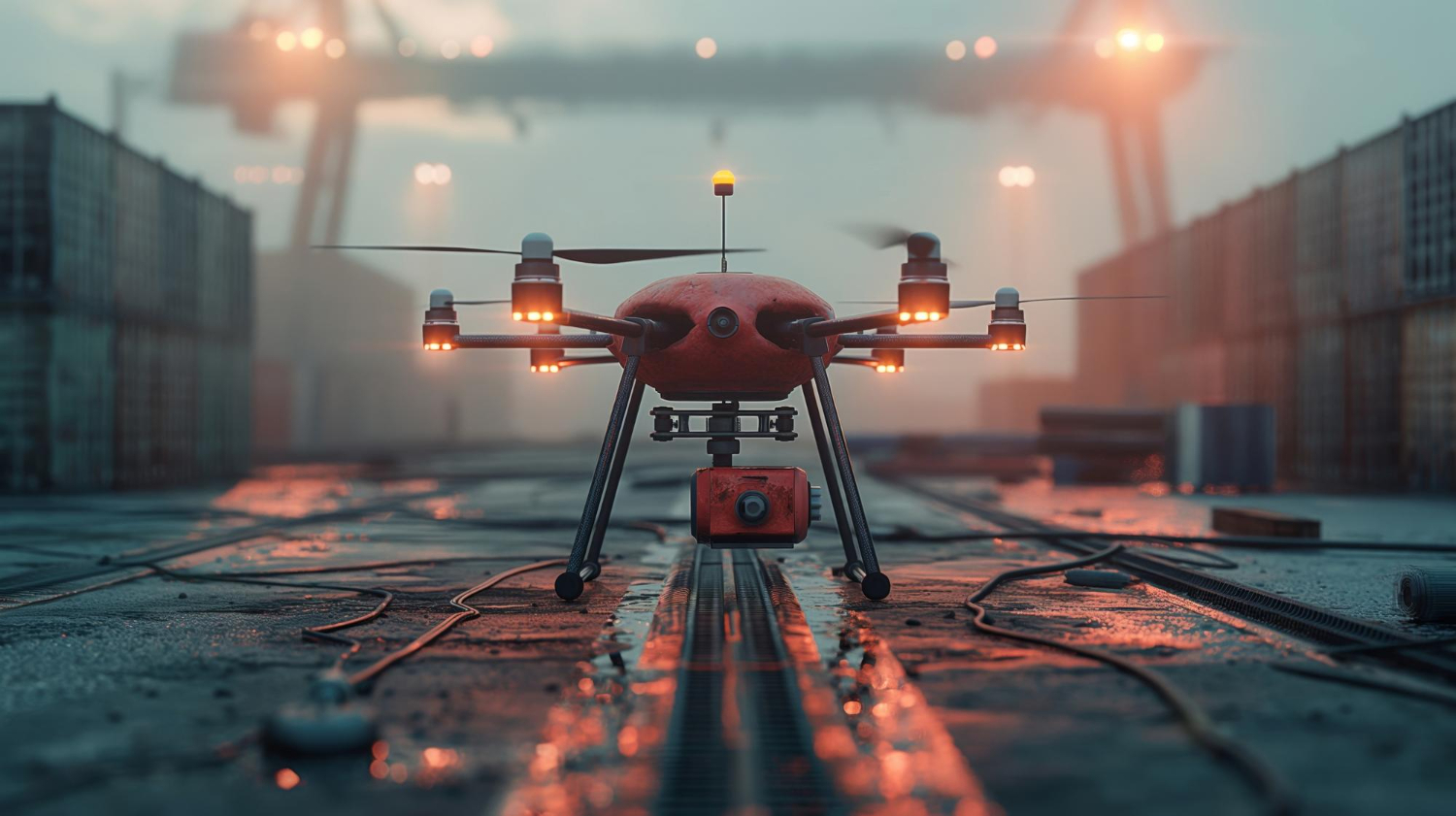
Hindustan Coca-Cola Beverages (HCCB) is pioneering a new era of workplace safety by implementing cutting-edge AI-enabled drones from Skylark Labs. Following a successful prototype phase that demonstrated significant reductions in safety risks, the beverage giant is now evaluating an ambitious multi-site rollout across its manufacturing facilities.
The adoption marks a significant shift in how industrial enterprises approach safety management. Traditional surveillance systems require constant human monitoring and often fail to prevent incidents before they occur. HCCB’s new approach leverages autonomous technology that operates continuously, learning and adapting to the unique characteristics of each facility.
How Self-Learning AI Drones Enhance Workplace Safety
The drone system deployed at HCCB facilities represents a significant advancement in industrial safety technology. Operating around the clock without interruption, these autonomous drones utilize edge AI capabilities that continuously learn from their environment. This self-learning functionality allows the system to understand normal operational patterns, improving its ability to identify genuine safety concerns while dramatically reducing false alerts that plague conventional systems.
Comprehensive Safety Monitoring Capabilities
The AI-powered drones provide multiple layers of safety oversight. The system actively monitors personal protective equipment (PPE) compliance, ensuring workers are properly equipped with essential safety gear including helmets, high-visibility vests, and protective gloves. This automated verification helps prevent injuries that result from improper or missing safety equipment.
Beyond PPE monitoring, the drones patrol high-risk zones and machinery areas, detecting potential hazards before they escalate into dangerous situations. The system identifies unauthorized personnel attempting to access restricted areas, providing an additional security layer that protects both workers and sensitive facility zones.
Real-Time Alert System Enables Rapid Response
When the AI identifies a safety concern or policy violation, it immediately sends alerts to on-site safety personnel. This instant notification capability enables rapid intervention, allowing teams to address potential hazards before they result in injuries or incidents. The speed of response represents a fundamental improvement over traditional safety protocols that often rely on periodic inspections or post-incident reviews.
Industry Leaders Validate Adaptive AI Approach
Saket Verma, Factory Manager at HCCB, emphasized the transformative impact of the technology: “Our pilot with Skylark Labs delivered real-time visibility and measurable improvement in risk detection, empowering teams to intervene before incidents—not after.” This shift from reactive to proactive safety management represents a paradigm change in industrial operations.
Dr. Amarjot Singh, CEO of Skylark Labs, explained the technological advantage: “Traditional systems look for preset violations. Our self-learning AI adapts to each facility’s unique environment and becomes more effective every day.” He noted that HCCB’s adoption and planned expansion demonstrate that adaptive AI represents the future of industrial safety management.
Proven Success in Large-Scale Public Safety Operations
Skylark Labs’ technology extends beyond industrial applications into public safety scenarios. During Maharashtra’s Ashadi Wari religious pilgrimage in Pandharpur, the company demonstrated the system’s capability at massive scale, helping authorities monitor over 27 lakh (2.7 million) people.
Multi-Agency Collaboration for Crowd Management
Working in partnership with ideaForge and Bluesky Amida, Skylark deployed drones that tracked crowd movement patterns and analyzed density levels in real-time. The system pushed instant alerts to police command centers, enabling quicker decision-making and smoother crowd management during this massive religious gathering.
Edge Processing Delivers Critical Speed Advantage
A key technological differentiator lies in how the system processes information. Rather than relying on cloud-based analysis that requires stable internet connectivity, Skylark’s drones perform video processing directly onboard using edge AI. This on-device inference capability identifies congestion, safety violations, and other risks immediately, even in environments with weak or unreliable network connectivity.
This architectural decision proves particularly valuable in high-risk settings where every second counts. The elimination of cloud latency enables faster decision-making and response, whether managing factory floor safety or coordinating emergency response during large public events.
The Future of Adaptive Safety Technology
As HCCB moves forward with its multi-site evaluation, the company is setting a precedent for modern manufacturing safety standards. The success of adaptive AI in reducing risks while improving operational efficiency suggests broader adoption across industrial sectors is inevitable. Organizations seeking to enhance worker safety, reduce incident rates, and optimize security operations are increasingly turning to autonomous, self-learning systems that evolve with their operational needs.
The collaboration between HCCB and Skylark Labs demonstrates how emerging technologies can address longstanding safety challenges while creating more secure, efficient work environments for the future.
Cover the latest EHS news updates with a single click. Follow DistilINFO EHS and stay ahead with updates. Join our community today!


Leave a Reply